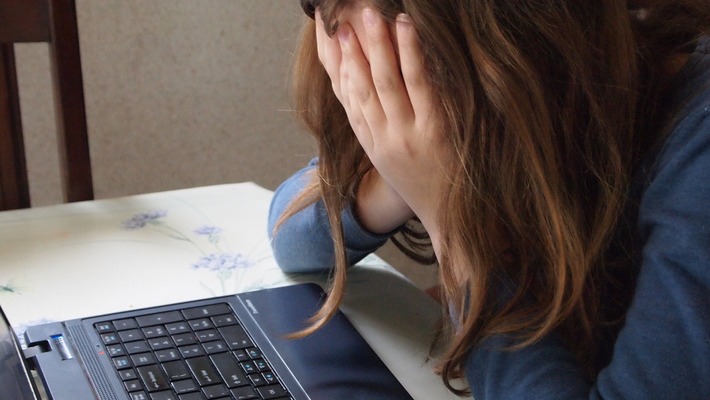

16th of June, 2021

by Annalice Rayner
You may never have heard of it, but as many as five percent of New Zealanders are all too familiar with the harm caused by image-based sexual abuse.
Image-based sexual abuse (IBSA) is defined as the non-consensual sharing of private sexual materials, or threat of doing so. This may be done with intent to cause distress but is largely motivated by a desire for power and control. You may be more familiar with the term “revenge-porn”, which is the non-consensual sharing of explicit images or videos of another person (often an ex-partner), to “get back at them”. But IBSA also includes other harmful acts, including:
These colloquial terms may be catchy, but they can also detract from and minimse the seriousness of these actions, which are acts of sexual abuse.
Research indicates that the impacts on the victim-survivor of IBSA are similar to that experienced by victim-survivors of physical sexual assault. PTSD, depression and anxiety are commonly experienced by victim-survivors, as well as a sense of shame and low self-confidence/self-esteem. They may start to see the world as an unsafe place, wondering who has seen their very intimate images and who they can still trust.
Many victim-survivors of IBSA experience ongoing impacts on their job and career prospects, as well as negative impacts on current and future relationships. Doxing (publishing of personal information such as phone numbers, workplaces, and home addresses), harassment and bullying also often occur, which amplifies the distress.
A significant factor in the distress caused by any form of sexual harm is loss of control. A victim-survivor of a physical/in-person sexual assault often experiences this when the sexual assault occurs and may re-experience this when going through the police or court process, or if someone else shares their story without consent. Victim-survivors of IBSA also experience this loss of control when they first learn that their intimate images/recordings have been shared (or threatened to be shared). They continue to experience this loss of control when the images/recordings are re-posted or commented on, as once an image or recording is posted online it is challenging to remove it completely, so people live in constant fear of when and where their images/recordings may show up next.
Unlike a physical/in-person sexual assault where the effects are usually more “contained”, image-based sexual abuse can span across time, potentially popping up years later, and across different domains - images and videos can be downloaded onto personal hard drives, so even if they are removed from multiple websites, they can be re-uploaded at a later date, ready to traumatise the victim-survivor all over again. The content may be viewed by the victim’s neighbour, boss, uncle, best-friend’s cousin… Or it may be viewed by a complete stranger in Australia or Spain or China or Brazil. No matter where the victim-survivor goes, or who they encounter, there is the constant “what if this person has seen my naked images?”.
All of these effects are continuous and long-lasting. Image-based sexual abuse is insidious. It has no borders.
Further blows occur when they are told by Police that there is not a lot that can be done within the current bounds of the law, and again when they seek counselling, only to be told that image-based sexual abuse is not covered by ACC Sensitive Claims. This is because ACC assesses “mental injury caused by certain criminal acts”, which are listed in Schedule 3 of the Act. Unfortunately, Schedule 3 relies on the Crimes Act 1961, which states mental injury can only be sustained ‘in person’. The internet did not officially exist until 1983 (and was certainly not the internet as we know it today)! This archaic legislation means that anyone affected by IBSA is not currently eligible for ACC funding. It not only invalidates a very distressing experience, but also creates unnecessary barriers to healing and recovery.
This is not an issue that is going to just “go away” and has led to my petition for the Government to amend the Accident Compensation Act 2001 to include sensitive claim cover for “mental injury” caused by image-based sexual abuse.
Legislature around the world has been struggling to keep up with the rapid technological developments of the past few decades and New Zealand law is no exception. The Harmful Digital Communications Act, or HDCA was passed in 2015, in an attempt to help people in New Zealand deal with serious and harmful digital communications. This is a broad Act aimed at tackling harmful digital communications in general - it is not sexual abuse specific. However, a major flaw of the HDCA at present is the requirement for prosecution to prove that there was intent to cause harm. A Member’s Bill - Harmful Digital Communications (Unauthorised Posting of Intimate Visual Recording) Amendment Bill, put forward by MP Louisa Wall, is currently before a Parliamentary Select Committee. This amendment bill aims to make it an offence to post an intimate visual recording without express consent to do so and would not require the prosecution to prove intent to harm. Anyone convicted under this amendment may receive a sentence of up to 3 years in prison, or a fine of up to $50,000 - this reflects the serious nature of, and the harm caused by, image-based sexual abuse.
So, what can you do?
Needing support for sexual harm?
Extra: IBSA research: